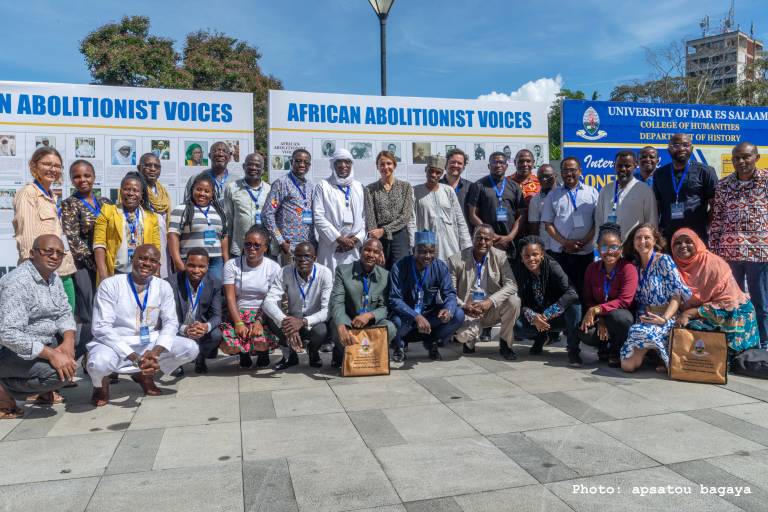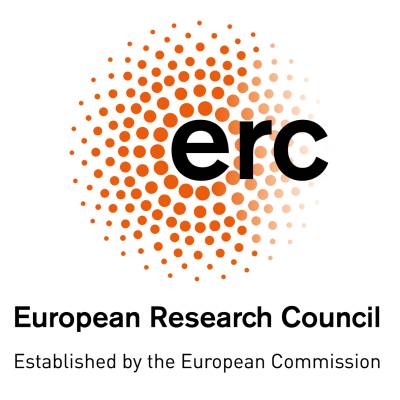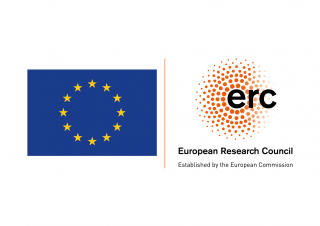African Abolitionism: The Rise and Transformations of Anti-Slavery in Africa
Slavery was a major institution in all African regions throughout the whole of the 19th century. To date, most research has focused on colonial anti-slavery legislation and abolitionist actions. The history of African abolitionists and their struggles to end slavery remains largely undocumented. Little has been written about the localised trajectories of abolitionist ideas and strategies in Africa. The EU-funded AFRAB project aims to fill this knowledge gap. To that end, it will study how the African ruling classes, intellectuals, commoners, enslaved persons and persons of slave descent began to challenge the legitimacy of slavery for all humans within their own societies. The findings will contribute to African and global history and slavery studies by analysing and comparing African abolitionist ideas and anti-slavery movements.

Objective
Many general questions have never been asked: When and where did African abolitionist movements develop? Who are the main ideologues of African abolitionism? How did abolitionism spread, among which groups? What forms of political struggle did African anti-slavery give rise to? While individual African abolitionists and regional movements have attracted limited attention, there is no major review of the phenomenon on a continental scale. AFRAB fills this gap. It contributes to African and global history and slavery studies by analyzing and comparing African abolitionist ideas and anti-slavery movements, the long-term consequences of European abolitionism, and the resilience of pro-slavery discourses.
Researchers
Many researchers have been conducting collaborative research and meeting at workshops and conferences to discuss their findings on AFRAB's questions. Some of them are based at UCL, others work in different African universities. Detailed information is provided in the regional teams' web-pages in this website. Below is a list of the main researchers and their roles.
UCL Team:
1. Benedetta Rossi: principal investigator, conducts research on/in in Francophone West Africa region and works with teams in all the regions of geographic research focus.
2. Michelle Liebst: postdoctoral researcher, conducts research on/in Anglophone East Africa and works closely with local teams in this region.
3. Alexander Meckelburg: postdoctoral researcher, conducts research on/in Ethiopia and works closely with local teams in this region.
4. Michael Odijie: postdoctoral researcher, conducts research on/in Anglophone West Africa and works closely with local teams in this region.
5. Melanie Horstead: AFRAB's Project Administrator.
Cameroon:
1. Ahmadou Sehou (professor, university of Maroua, and director of CERPETA): country team coordinator; comparison of abolitionist approaches across southern, central, and northern Cameroun from precolonial period to present; colonialism and abolitionism; Islam and abolitionism in West Africa.
2. Adam Mahamat (associate professor, university of Maroua): abolitionism and approaches to ending slavery in the Emirate of Fombina (Northern Cameroun); Islamic approaches to abolition.
3. Janvier Guidang-Tchinabi (PhD researcher, university of Maroua): abolitionism and approaches to ending slavery in the Lamidate of Mandala (Northern Cameroun); Islamic approaches to abolition.
4. Roukayatou Hayatou (PhD researcher, university of Maroua): abolitionism and approaches to ending slavery in the Lamidate of Bibemi (Northern Cameroun); Islamic approaches to abolition.
5. Jules Sinang (associate professor, university of Yaoundé 1): abolitionism and approaches to ending slavery in coastal Cameroun; abolition treaties between coastal rulers and British abolitionists in the mid-XIX Century.
6. Samson Mengolo Mbel (associate professor, University of Buea): abolitionism and approaches to ending slavery in the Grassroots region; memory of slavery and abolition; heritage sites and contemporary public history on slavery and abolition.
7. Nkwiyir Marina Mungfub (PhD researcher, University of Buea): abolitionism and approaches to ending slavery in Western Cameroon; memory of slavery and abolition; ritual approaches to legacies of slavery.
Ethiopia:
1. Takele Merid (associate professor at Addis Ababa University and director of Institute of Ethiopian Studies): country team coordinator; abolitionist policies of Emperors Menilek and Haile Selassie; anti-slavery and anti-gabbar activism in Ethiopia.
2. Ahmed Hassen (full professor, AAU): micro-history of abolitionism in Afar and Ifat; role of grassroots school teachers and moral educators; abolitionism in Islamic Ethiopia.
3. Yonas Ashine (associate professor, AAU): elite intellectuals who mobilised for abolition in Ethiopia in the 1920s and 1930s; abolitionism in urban Addis Ababa; transformation of ideologies from discourse of manumission to discourse of abolition in Amharic; Ethiopian printed press (newspapers).
4. Bosha Bombe (associate professor, University of Arba Minch): contemporary abolitionism in Arba Minch; role of missionaries in colonial times and evangelical churches today.
5. Oljira Tujuba (associate professor, AAU): abolition and abolitionism in Oromo societies.
6. Ameyu Godesso (associate professor, University of Debre Markos): Islam, Islamic education, and abolition in Jimma.
7. Yonas Seifu (associate professor, University of Debre Markos): Islam, Islamic education, and abolition in Jimma.
Ghana:
1. Emmanuel Saboro (associate professor, University of Cape Coast, and Director of African Studies Centre): country team coordinator; abolitionism in northern Ghana; George Ekem Ferguson as native abolitionist; anti-Asante abolitionism.
2. Anita Kporkpor Pobi (PhD researcher, UCC): abolitionist role of John Mensah Sarbah; abolitionism in Fante societies in British Gold Coast.
3. Ruth Abeduah Quansah (PhD researcher, UCC): anti-slavery and women in colonial Gold Coast.
Kenya:
1. Samuel Nyanchoga (full professor, Catholic University of East Africa): country team coordinator; abolitionist activities of liberated Africans on East African coast; missions and abolitionism; "Bombay Africans", anti-slavery mobilisation of ex-slaves in Freretown, Rabai, and Gazi.
2. Short-term research assistants recruited on an ad-hoc basis in different locations of Nyanchoga's research.
In Kenya, AFRAB also has relations with the curators and staff of Fort Jesus Museum and other heritage sites managed by National Museums Kenya.
Niger:
1. Maikorema Zakari (professor, Abdou Moumouni University of Niamey, and director of LARSO): country team coordinator. Supports AFRAB's relations with national institutions and oversees research activities in Niger.
2. Oumarou Moussa (associate professor, Djibo Hamani University of Tahoua: research lead working on Nigerien anti-slavery NGOs (Timidria and ORDH) and civil societies organisations; legal abolition in Niger from 1900 onwards; Islamic approaches to abolitionism; abolitionism in Tuareg and Djerma-Songhay societies.
3. Alakarbo Hassimou (associate professor, Abdou Moumouni University of Niamey: abolitionism in Hausa contexts; women as anti-slavery activists in Niger.
4. Abdoulaye Tchiambou (researcher associated with LARSO): the abolitionist association RDM Tanifili and comparisons between different approaches to abolition across Niger's main anti-slavery NGOs.
5. Apsatou Bagaya (entrepreneur, photographer, and activist): formerly enslaved women (sold by master of their mothers to wealthy men) who self-emancipated and became abolitionists; realised the documentary "wahaici"; captures AFRAB research progress in photos and videos.
Nigeria:
1. Olutayo Adesina (professor, University of Ibadan): country team coordinator; abolitionism and approaches to ending slavery in Nigeria and particularly in Yoruba societies; abolitionism and elite and palace slaves; post-colonial political and cultural discourses about abolition.
2. Monsuru Muritala (associate professor, university of Ibadan): abolitionism and approaches to ending slavery in Nigeria and particularly in Lagos; Islamic approaches to abolition in Nigeria.
3. Ihuoma Chinonso (PhD researcher, University of Ibadan): abolitionism and antislavery in south-eastern Nigeria; abolition of Ohu and Osu in Ibo region.
4. Ugbede Joseph Ineke (PhD researcher, University of Ibadan): abolitionism and approaches to ending slavery in Igala societies, central Nigeria; abolition in Lokoja.
5. Nwachukwu Uzoamaka (PhD researcher, University of Ibadan): abolitionism and antislavery in south-eastern Nigeria; abolition of Ohu and Osu in Ibo region; abolition and colonial taxation.
Tanzania:
1. Salvatory Nyanto (associate professor, University of Dar es Salaam): country team coordinator; abolitionism and approaches to ending slavery in Tanzania; missions and abolition; Bagamoyo and Tabora.
2. Happiness Msacky (MA researcher, UDSM): abolitionism in Bagamoyo.
3. James Magumba (MA researcher, UDSM): heritage sites, tourism, memory, commemoration, and abolitionism in Tanzania (and especially Bagamoyo).
4. Elizabeth Solomon (MA researcher, UDSM): abolitionism in Ujiji.
In 2021-2022, AFRAB also collaborated with the Julius Nyerere University of Kankan in Guinée, lead researcher: Brahima Kaba (associate professor); country coordinator: Seydou Magassouba (professor).
We have been working closely with individual researchers in Senegal (in particular: Dr Cheikh Sène, Mr Elhadj Cheikou Balde, and Professor Ibrahima Thioub) and the United States (in particular: Professor Ismael Musah Montana, specialist of slavery and abolitionism in Tunisia, Mauritania and generally Islamic North Africa; based at Northern Illinois University, US), who has been a collaborator and senior academic advisor. Professor Sabine Lee (University of Birmingham, UK) is AFRAB's Independent Ethics Advisor.
 This project has received funding from the European Research Council (ERC) under the European Union’s Horizon 2020 research and innovation programme (grant agreement No 885418).
This project has received funding from the European Research Council (ERC) under the European Union’s Horizon 2020 research and innovation programme (grant agreement No 885418).

 Close
Close


